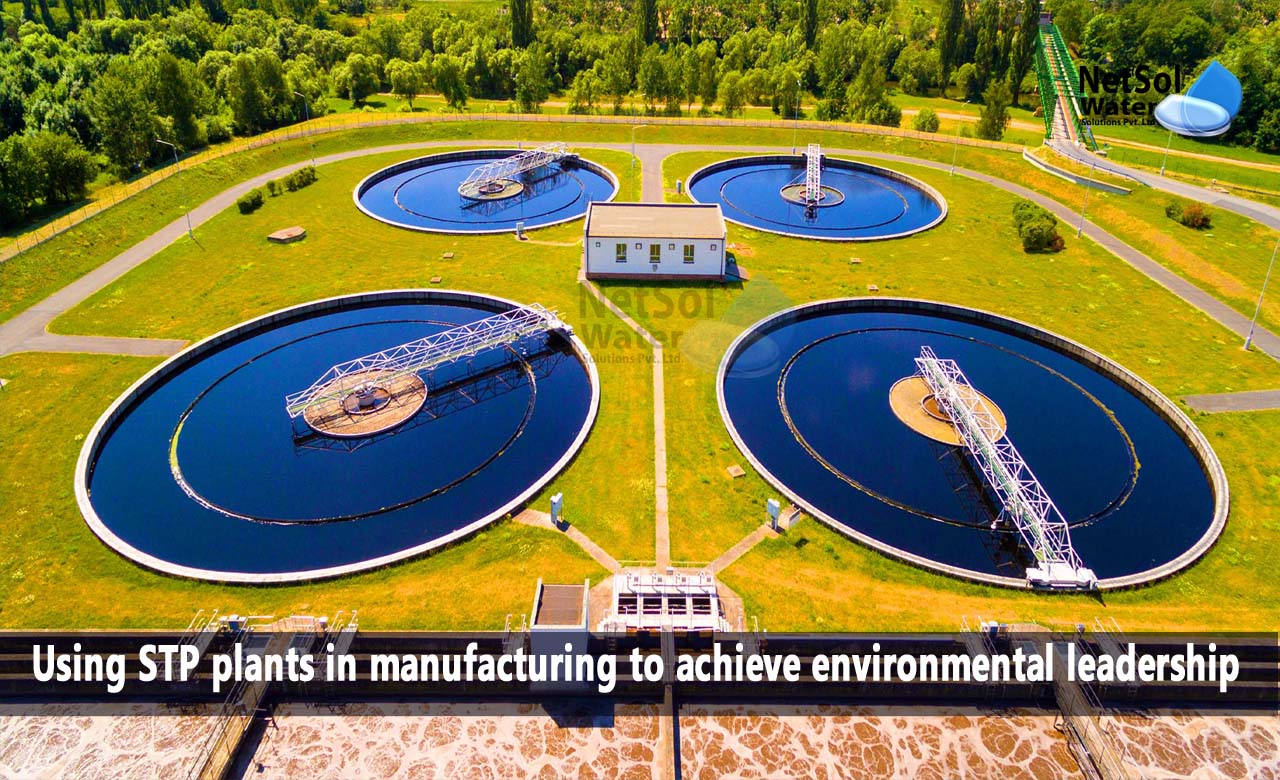Using STP plants in manufacturing to achieve environmental leadership
In the pursuit of sustainable practices and environmental stewardship, industries are increasingly recognizing the importance of adopting eco-friendly strategies. Manufacturing processes, in particular, have often been associated with negative environmental impacts. However, advancements in technology and a growing focus on corporate responsibility have paved the way for innovative solutions to address these challenges. One such solution is harnessing sewage treatment plants within manufacturing facilities, which not only helps in efficient waste management but also promotes environmental leadership.
In this blog post, we will explore the significance of sewage treatment plants in manufacturing and how they can contribute to achieving environmental sustainability.
1- Enhancing Waste Management:
Manufacturing processes generate a significant amount of wastewater and solid waste, which, if left untreated, can pose serious environmental risks. Sewage treatment plants offer a practical and effective solution for managing these wastes. By incorporating on-site treatment facilities, manufacturers can efficiently treat and recycle water, reducing the strain on local water resources. Moreover, solid waste can be properly processed, minimizing the release of harmful pollutants into the environment. This comprehensive waste management approach helps companies establish themselves as responsible stewards of the environment.
2- Resource Conservation:
Water is a finite resource, and industries are increasingly realizing the need to conserve and utilize it efficiently. By integrating sewage treatment plants, manufacturing facilities can recycle and reuse water within their operations. Wastewater that undergoes proper treatment can be repurposed for various non-potable applications, such as cooling systems, irrigation, or even toilet flushing. This not only reduces reliance on freshwater sources but also minimizes the discharge of untreated wastewater into natural bodies of water. By embracing water conservation practices, manufacturers demonstrate their commitment to environmental leadership.
3- Mitigating Environmental Impact:
Industrial wastewater often contains a range of pollutants and contaminants that can be detrimental to ecosystems and human health if released without proper treatment. Sewage treatment plants play a vital role in mitigating these environmental impacts. Through various treatment processes, such as primary, secondary, and tertiary treatment, contaminants are removed or significantly reduced, ensuring that the discharged water meets stringent regulatory standards. By proactively treating their wastewater, manufacturing facilities can minimize the ecological harm caused by their operations, contributing to a healthier planet.
4- Energy Generation:
Harnessing the potential of sewage treatment plants goes beyond efficient waste management. Many modern treatment facilities have the capacity to generate renewable energy through technologies like anaerobic digestion. Anaerobic digestion involves breaking down organic matter in wastewater to produce biogas, a valuable energy source. Manufacturers can utilize this biogas to power their operations, reducing reliance on fossil fuels and further lowering their carbon footprint. This integration of wastewater treatment with energy generation showcases the potential for symbiotic relationships between manufacturing and environmental sustainability.
5- Community Engagement and Reputation:
By incorporating sewage treatment plants within their facilities, manufacturers not only address their own environmental impact but also actively engage with their local communities. Transparent communication about their wastewater treatment processes and their commitment to environmental stewardship fosters trust and collaboration with neighboring communities. Demonstrating responsible practices can enhance a company's reputation and position it as an environmental leader within its industry. Moreover, it sets a positive example for other businesses, encouraging the adoption of similar sustainable measures.
Conclusion:
As the world grapples with pressing environmental challenges, it is imperative for industries to take a proactive approach towards sustainable practices. Harnessing sewage treatment plants within manufacturing facilities not only improves waste management but also promotes environmental leadership. By effectively treating wastewater, conserving resources, mitigating environmental impacts, and even generating renewable energy, manufacturers can demonstrate their commitment to sustainable development. Embracing sewage treatment plants signifies a shift towards responsible and eco-friendly manufacturing, benefiting both the planet and the reputation of the companies involved. Through such initiatives, we can pave the way for a greener and more sustainable future.
Netsol Water is Greater Noida-based leading water & wastewater treatment plant manufacturer. We are industry's most demanding company based on client review and work quality. We are known as best commercial RO plant manufacturers, industrial RO plant manufacturer, sewage treatment plant manufacturer, Water Softener Plant Manufacturers and effluent treatment plant manufacturers. Apart from this 24x7 customer support is our USP. Call on +91-9650608473, or write us at enquiry@netsolwater.com for any support, inquiry or product-purchase related query.



